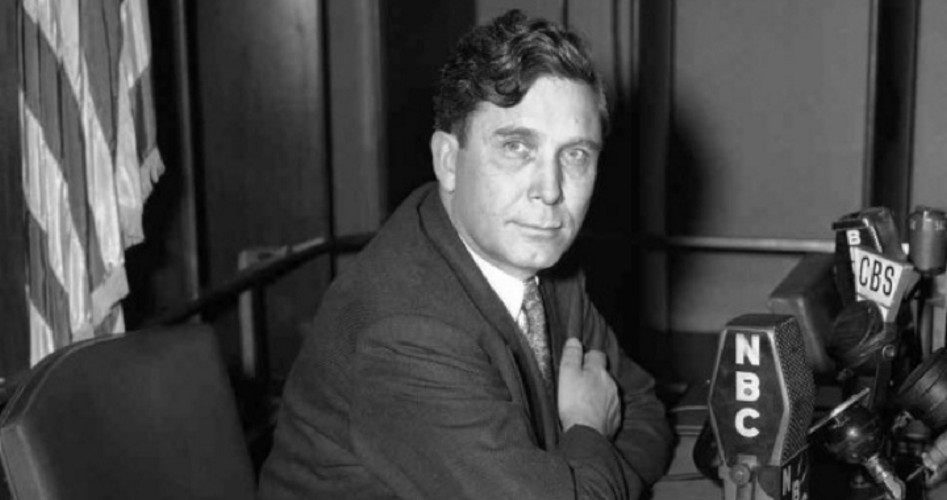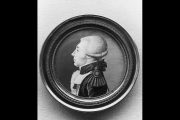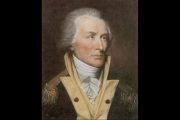
This article takes a hard look at the behind-the-scenes intrigue that catapulted unknown Wendell Willkie to head the Republican ticket in 1940 — and guaranteed FDR an unprecedented third term.
As the familiar figure strode to the dais, the convention delegates rose in a thunderous ovation of cheers that went on and on. The figure was former President of the United States Herbert Hoover, and he had been chosen by Republican Party leaders to deliver one of the most important speeches of the 1940 convention. It was their hope that his speech would galvanize the party faithful behind the convention’s still unchosen candidate to unseat the reigning White House occupant, Franklin Delano Roosevelt.
However, when the roar of the convention crowd subsided and Mr. Hoover began his much anticipated speech, his voice could not be heard. His microphone mysteriously didn’t work. It was a humiliating experience for the ex-president and a disaster for this crucial party gathering in Philadelphia during the hot, steamy June of 1940.
Time magazine, reflecting the spin of much of the major media of the time, blamed Hoover’s inadequacy as a speaker for the speech failure. In its serial coverage of the convention in June 1940, Time reported:
Even now the delegates came with solemn hope they would get a chance to tear up their chairs and set fire to their hats. They were more than willing to give him the benefit of all their doubts; they were eager to hear him demolish the New Deal; they were even more eager to cheer some challenging declaration of faith. But inflexible Mr. Hoover mushmouthed his delivery; the clear, hot words of his finest address got lost (as always) deep in his bulldog chops. He stood there awkwardly, a near-great man whose fate has been to cast his mother-of-pearl words before mobs who, whether friendly or bitter, always yell “Louder!”
This standard account of the Hoover speech debacle was reinforced with the publication in 2005 of Charles Peters’ Five Days in Philadelphia: The Amazing “We Want Willkie!” Convention of 1940 and How It Freed FDR to Save the Western World. The major reviews of the Peters book tended toward the glowing side, and those that mentioned the Hoover speech incident tended to adopt the now commonly held view that Hoover blew it.
However, historian Thomas E. Mahl, in his important 1998 book, Desperate Deception: British Covert Operations in the United States, 1939-1944, finds that the Hoover speech fiasco was only one of a series of “inside job” incidents orchestrated at the convention by Sam Pryor, the Pan American Airways executive, close friend of the Rockefeller family, and OSS/CIA operative. By the death of Ralph E. Williams a couple weeks before the Philadelphia gathering, Pryor had gained control of the convention floor, as chairman of the committee on arrangements. Williams had been a “Taftie,” a supporter of presidential aspirant Senator Robert Taft; Pryor was a Willkie insider. The shift from Williams to Pryor — and the powerful unseen forces behind him — proved to be momentous. Among other things, says Mahl, Pryor’s new position enabled him to “take over the convention and the allocation of essential credentials. Pryor reduced the ticket allotments to delegations committed to other candidates. Delegations committed to Willkie got their full allotment. Finally, as Pryor told it years later, he printed a duplicate set of tickets and opened up the galleries to Willkie supporters, who responded with the ‘We Want Willkie’ chant so embossed on the memories of participants.”
In Desperate Deception, Mahl writes:
Pryor ordered one other small job for which there is sworn testimony. Former President Herbert Hoover wanted to stay aloof from the war in Europe. He had worked on his isolationist speech for weeks, and those who read it thought it the best speech of his career. When he marched to the podium a great roar erupted from the fifteen thousand as they stood and cheered, in expectation, for seven minutes.
Sam Pryor, or someone advising him, had foreseen this embarrassing situation. An enthusiastic response from the delegates to an isolationist speech would have set entirely the wrong tone. There was no great response; in fact, the delegates could not hear the speech. Pryor had had a faulty microphone installed for the ex-president’s speech, and years later Hoover obtained a deposition to this effect.
“Strangely,” notes Mahl, “Hoover also had difficulty making himself heard at his convention press conference at the Bellevue Hotel, because a drum corps happened to march into the lobby as he was speaking.” Yes, a great many strange quirks just seemed to “happen” at Philadelphia, culminating in the “miraculous” choice of Wendell Willkie, a virtual unknown — and a life-long Democrat who mirrored FDR’s positions on most important issues — to be the Republican standard-bearer.
The “Miracle” in Philadelphia
The 1940 presidential election was one of the most critical in American history. The dark clouds of war were looming in Europe and the Pacific. With the carnage of World War I still vivid in the memory of millions, America was overwhelmingly opposed to U.S. involvement in any foreign war. President Roosevelt, despite signing the Neutrality Acts of 1935, 1936, and 1937, and despite his many public promises to do everything within his power to keep us out of war, had been moving us steadily closer to war. And, as the diplomatic history of the period and the documents, notes, and diaries of FDR and Washington insiders later proved, the president had been striving mightily to find an incident that would drag America into the war. While most of his schemes remained hidden, his efforts had become sufficiently transparent that millions of voters, including many in his own party, were becoming convinced that FDR’s non-interventionist rhetoric masked a pro-war agenda.
In addition, Roosevelt’s decision to seek an unprecedented third term alienated many in both parties, providing confirmation of his imperial ambitions. Not only did this violate the sacrosanct two-term limit that had been observed by every president since George Washington, it upset the plans of other Democratic leaders who had presidential plans of their own. Moreover, many of FDR’s former supporters were still heated up over his flagrant scheme to pack the Supreme Court, his wild deficit spending, and his massive expansion of the federal bureaucracy.
Roosevelt knew he would be facing a battle royal in the 1940 race — if, that is, the Republican Party fielded a credible candidate. The leading contenders — Senator Robert Taft of Ohio (the son of President William H. Taft), Senator Arthur Vandenberg of Michigan, and Manhattan District Attorney Thomas Dewey — were all non-interventionists who could be expected to give him a tough run on both his domestic and foreign-policy records. These seasoned frontrunners, however, were upstaged by an unknown dark-horse candidate who, previously, had never even run for any public office.
Wendell Willkie’s capture of the Republican nomination, commonly referred to as “The Miracle in Philadelphia,” has achieved near mythic status in U.S. political history. The acerbic journalist/commentator H.L. Mencken, who attended the convention, was quoted as saying: “I am thoroughly convinced that the nomination of Willkie was managed by the Holy Ghost in Person.” Mencken, an agnostic and an opponent of interventionism and New Dealism, was, most likely, being facetious.
As we’ve already noted, it was Sam Pryor, not the Holy Ghost, who stage-managed the convention outcome. “Pan Am Sam” was indeed fronting for higher powers, but not the heavenly kind. Here is Time’s description of the events as they unfolded at the convention:
With the third day came something like panic. Suddenly the newspapers, even their home-town papers, were black with tall headlines, homemade advertisements, home-grown editorials, all shrieking “We Want Willkie!” The delegates couldn’t understand it. The big bear-man’s face, life, family swiftly became oppressively familiar. Most of the delegates wanted to be let alone, to go about their ancient business in the ancient way. But rabid strangers, unlike any political heelers they had ever seen, surrounded them on the street, gripped their lapels, argued bitterly, demanded (not begged) their vote for this man Willkie. In this urgent, crusading atmosphere the delegates were increasingly uncomfortable. They could no longer read the newspapers with any enjoyment for all the important political columnists were daily comparing the nomination of anyone but Willkie to the Fall of France…. From the first night the galleries had shouted “We Want Willkie” over & over like a college yell. Delegates could hardly get into their rooms past the bundles of pro-Willkie telegrams from back home. Their suits came back from the hotel valet with Willkie buttons pinned on. Long-distance calls came from their wives, pastors, bankers, luncheon clubs, saying with one voice: “Willkie!”
This tremendous outpouring of support, said the Willkie supporters (and still say political commentators), was proof positive that the “Willkie phenomenon” sprang from the grass-roots. In truth, the Willkie Clubs that had sprouted shortly before the convention and that directed the continuous avalanche of telegrams and telephone calls to convention delegates, were the creation of Oren Root, grandnephew of the famous senator and Secretary of War Elihu Root. Like his great uncle, Oren Root was closely tied to the powerful banking dynasty of J.P. Morgan, as a member of the Morgan law firm of Davis, Polk, Wardwell, Gardner, & Reed.
Oren Root represented just the tip of the Morgan iceberg lurking beneath the folksy surface of Willkie, the “Midwesterner.” Although he had been born and raised in Indiana, Willkie had gone to New York City in 1929 to be legal counsel to Commonwealth & Southern Corporation, the nation’s largest electric utility holding company. By 1933, he was president of the company and a major supporter of FDR in the Democratic Party. Among Willkie’s close friends was the very wealthy Thomas W. Lamont, chairman of the board of J.P. Morgan & Co. Mr. Lamont, like Elihu Root and Oren Root, was a leading light in the Council on Foreign Relations, the private behind-the-scenes presidium that has dominated both the Republican and Democratic parties for most of the past century.
Not-so-divine Intervention
The Willkie campaign is the textbook case of the premier denizens of Wall Street palming off one of their agents as the quintessential “Main Street, USA” everyman. The Willkie faux miracle was in reality a successful hijacking of the GOP convention. Rather than a dark horse, Willkie turned out to be a stalking horse for powerful interests who were so intent on keeping Roosevelt in office for a third term that they did not flinch at a campaign of actions that ranged from immoral to illegal to treasonous. Who were those powerful interests? In short, they comprised a triumvirate of three houses: the White House, Pratt House, and Chatham House.
The White House, of course, is familiar to everyone, outside of those few souls dwelling in the deepest rain forests. Mention of the other two houses, on the other hand, draws a blank stare, even from the politically savvy. Pratt House is the New York City headquarters of the Council on Foreign Relations (CFR). Chatham House is the London headquarters of the Royal Institute of International Affairs (RIIA), the CFR’s elder sister, and the recognized front of the power behind the throne in Britain.
The Willkie nomination, one of many successful covert operations masterminded by this troika, was carried out through the joint efforts of British intelligence and its fledgling American counterpart, what would become the Office of Strategic Services (OSS) and, later, the Central Intelligence Agency (CIA). Key high-level operatives in this intelligence operation were Sam Pryor, Oren Root, Thomas Lamont, media magnate Henry Luce, Willkie’s campaign manager (and Luce’s managing editor at Fortune magazine) Russell Davenport, and British Ambassador Lord Lothian.
The man who headed up British intelligence in the United States during this period was Sir William S. Stephenson, a wealthy industrialist and highly decorated World War I flying ace. Using his business dealings as a cover, Stephenson came to the United States in 1940 with the primary assignment of bringing America into the war on Britain’s side. Code-named “Intrepid,” Stephenson represented Britain’s domestic Security Service (MI-5) and its foreign Secret Intelligence Service (MI-6). He established his headquarters in New York City at the luxurious Rockefeller Center, occupying the 36th and 37th floors. His main office was Room 3603. The Rockefeller family, key movers and shakers in the Pratt House-Chatham House network, generously “rented” him this prime office space for a penny per year. Nelson Rockefeller (CFR), later to become vice president of the United States, was in charge of the British intelligence operation known as the Office of Coordinator for Inter-American Affairs.
The top-secret Stephenson-run agency, known as the British Security Coordination (BSC), was the progenitor of the American OSS and CIA. The Director of OSS, General William J. “Wild Bill” Donovan (CFR), once said: “Bill Stephenson taught us all we ever knew about foreign intelligence.” Unfortunately, much of the tradecraft that the Brit spy master and his cohorts taught their American protégés involved activities that had little or nothing to do with protecting the United States against foreign and domestic enemies, but a great deal to do with subverting our most cherished freedoms and our constitutional checks against despotic power.
Ernest Cuneo, code-named “Crusader,” was the top American liaison between BSC, FDR, OSS, the State Department, the Treasury, and the Justice Department. In a CIA file that was brought to light by Prof. Mahl, Cuneo acknowledged that the BSC “went beyond the legal, the ethical, and the proper.” Cuneo then further detailed the nature of some of the unethical and criminal offenses: “Throughout the neutral Americas, and especially in the U.S., it ran espionage agents, tampered with the mails, tapped telephones, smuggled propaganda into the country, disrupted public gatherings, covertly subsidized newspapers, radios, and organizations, perpetrated forgeries — even palming one off on the President of the United States — violated the aliens registration act, shanghaied sailors numerous times, and possibly murdered one or more persons in this country.”
Cuneo’s admission fits with the testimony of British agent Bickham Escott, who said that when he was recruited he was told: “If you join us, you mustn’t be afraid of forgery, and you mustn’t be afraid of murder.” In light of these admissions, is it outlandish to ask if some of the unexplained and “convenient” deaths of the period may have been “assisted” by the BSC’s operatives? In the context of the Willkie nomination, the sudden death of convention manager Ralph Williams (a Taft man) and his replacement by Sam Pryor (a Willkie-Rockefeller-FDR-BSC man) now looks suspiciously propitious. Wild speculation? Perhaps. But, perhaps not.
“Clearly,” writes Prof. Mahl, in Desperate Deception, “the major purpose of BSC was to conduct aggressive offensive operations against those it saw as enemies of Britain.” However, he notes, this “included not only Hitler’s agents in the United States, but those who simply wished to remain uninvolved in the European war.” That included American citizens, especially prominent politicians, who were tagged with the pejorative label of “isolationist.” This false label grotesquely implied that Americans who adhered to the traditional view of our Founding Fathers against foreign intervention and entanglement were somehow trying to retreat into a fantasy world in which our country would be sealed off from all intercourse with foreign nations. Even worse, the BSC cabal did everything possible to associate the isolationist tag with Naziism and fascism.
“Isolationist” politicians targeted for BSC/OSS dirty-tricks campaigns included New York Congressman Hamilton Fish, Michigan Senator Arthur Vandenberg, Montana Senator Burton K. Wheeler, North Dakota Senator Gerald P. Nye, California Senator Hiram Johnson, and Ohio Senator Robert Taft. In Desperate Deception, Dr. Mahl takes one chapter each to detail the two very different lines of attack — the carrot vs. the stick — adopted by BSC to deal with different personality types, as typified by Arthur Vandenberg and Hamilton Fish.
Sen. Vandenberg, a well-known womanizer, was a relatively easy mark for compromise by BSC “carrots” Mitzi Sims, Elizabeth Thorpe Pack, and Eveline Patterson Cotter. He was gradually seduced (and perhaps blackmailed) by these femme fatales to convert from isolationist to internationalist.
The stalwart Rep. Fish, who was a popular incumbent in a safely Republican district, was not as easily disposed of. He was relentlessly assaulted with an endless smear campaign of false charges: abuse of the congressional franking privilege, being anti-Semitic and pro-Hitler, tax evasion, etc. He successfully refuted all of the accusations. The anti-Semite charges, for instance, were easily disposed of, as he had been the author of the Zionist Resolution for a Homeland for the Jewish People that passed Congress in 1923 and had always had strong support among his Jewish constituents. Four years of constant media attacks did gradually whittle down his once-overwhelming support among voters, but it took the redrawing of his district to oust him.
The BSC/CFR media elite — Drew Pearson, Walter Lippman, George Backer, Joseph Alsop, Ogden Reid, A. H. Sulzberger, George Gallup, Henry Luce — who led the smear attacks on the “isolationists” were also the same coterie that transformed Willkie into the instant GOP sensation at Philadelphia. However, after securing Willkie’s nomination, they dropped him like the proverbial hot potato, abandoning his campaign to founder so that Roosevelt would be assured of another victory. But don’t worry that poor Wendell might have been heartbroken by the election loss; within a matter of months he was happily back in the Democratic Party and (at the suggestion of agent Intrepid) serving as FDR’s personal emissary to Britain. In 1943 he published One World, an early propaganda volley for world government and the as-yet still unformed United Nations organization. His media patrons quickly and enthusiastically boosted it to bestseller status. And the following year they were back brazenly and enthusiastically boosting him once again as the Republican candidate for president in 1944. Unfortunately, for their plans, Wendell “One World” Willkie wasn’t able to assist them this time around; he had already passed on to his eternal reward.
Photo: Wendell Willkie
This article originally appeared in the February 5, 2007 print edition of The New American.



